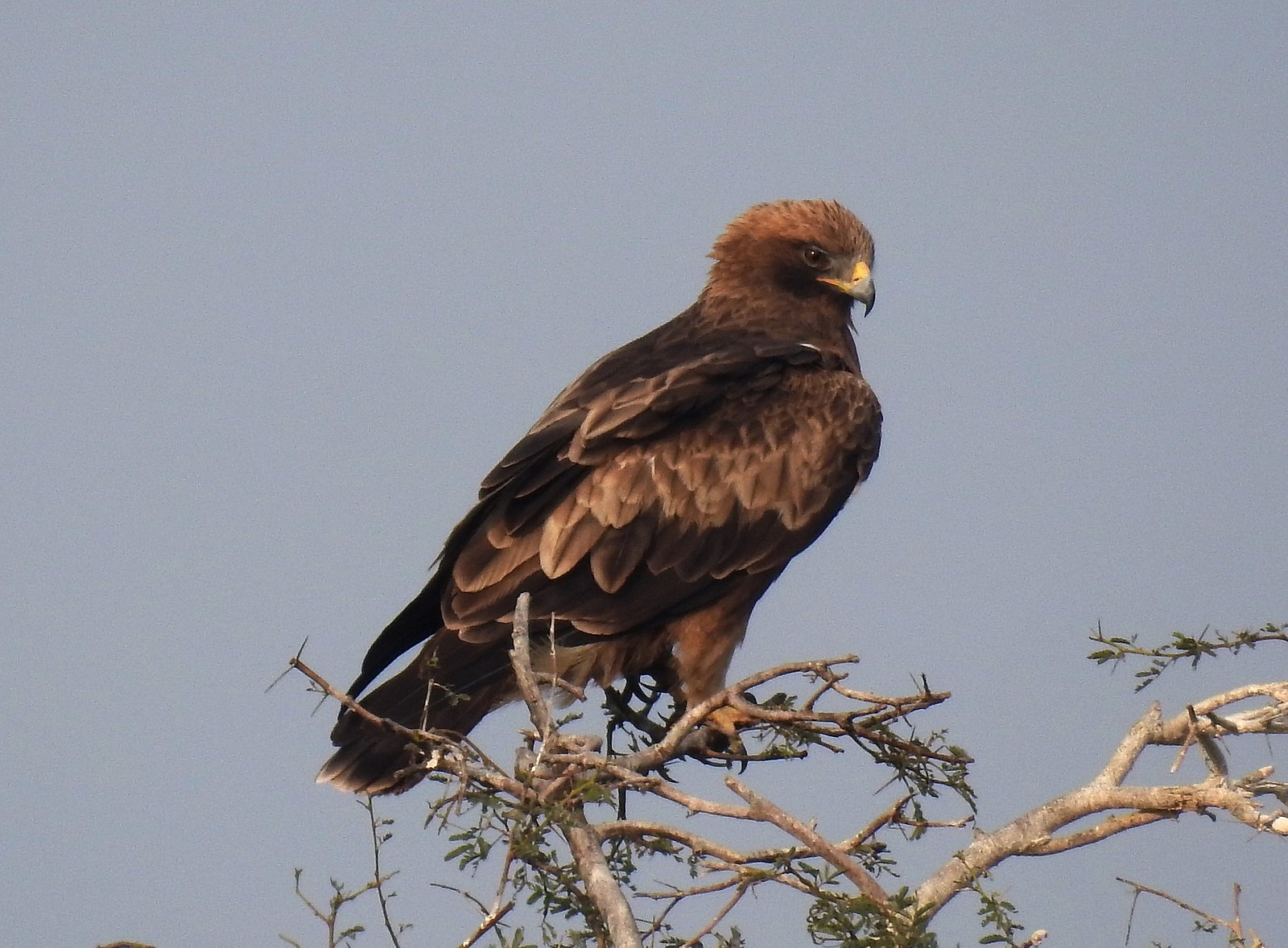Booted eagles, also known as ornate hawk-eagles, are known for their diligent parenting. During the incubation period, which lasts 43 to 48 days, the female rarely leaves the nest unattended. The male takes over incubation duties for short periods, ensuring the eggs are never left alone for long.
The Incubation Period: Keeping the Eggs Warm
The incubation period for booted eagle eggs is between 43 to 48 days. During this time, the female booted eagle spends the majority of her time on the nest, rarely leaving it unattended. The male booted eagle plays a crucial role in this process, as he takes over incubation duties for short periods, allowing the female to rest and forage.
Prior to egg-laying, the female booted eagle can be found in the vicinity of the nest 97.2% of the time, while the male is present only 30.4% of the time. This demonstrates the female’s dedication to the nest and the developing eggs.
Parental Care: Ensuring the Eggs are Never Left Alone
 Image source: Booted eagle By Dr. Raju Kasambe
Image source: Booted eagle By Dr. Raju Kasambe
During the incubation period, the female booted eagle often remains on the nest, while the male brings food for her and the developing eaglets. The male may replace the female on the nest for short periods, ensuring that the eggs are never left unattended for long periods.
This cooperative parenting strategy is crucial for the survival and healthy development of the booted eagle eggs. The female’s near-constant presence on the nest, combined with the male’s support, minimizes the time the eggs are left unattended.
The Transition to Eaglet Care
After the eggs hatch, the parents continue to provide diligent care for the eaglets. During the first three weeks of the eaglets’ life, the female spends about 90% of her time on the nest, while the male brings food for the mother and the chicks.
As the eaglets grow older, the parents begin to relax the brood’s care, leaving the eaglets in the nest unattended for short periods of time. By the 5th and 6th weeks, the parents take longer periods of time away from the nest and begin to roost away from the nest.
Factors Affecting Unattended Time
The amount of time the booted eagle eggs and eaglets are left unattended can be influenced by several factors, including:
-
Weather Conditions: Extreme weather events, such as heavy rain or cold temperatures, may prompt the parents to spend more time on the nest to protect the eggs or young eaglets.
-
Predator Presence: If there is a perceived threat from predators, the parents may be more vigilant and spend less time away from the nest.
-
Food Availability: The need to forage for food can influence the duration of the parents’ absences from the nest.
-
Eaglet Development: As the eaglets grow older and become more independent, the parents may feel more comfortable leaving them unattended for longer periods.
Conclusion
In summary, booted eagle eggs are rarely left unattended during the incubation period, as the female spends the majority of her time on the nest, and the male takes over incubation duties for short periods. After the eggs hatch, the parents continue to provide diligent care for the eaglets, with the female spending about 90% of her time on the nest during the first three weeks. As the eaglets grow older, the parents begin to leave the nest unattended for short periods, but they still maintain a close watch over their offspring to ensure their survival and healthy development.
References:
– Ornate hawk-eagle – Facts, Diet, Habitat & Pictures on Animalia.bio, https://animalia.bio/ornate-hawk-eagle?category=3
– Baby Bald Eagles in the Nest: Hatching to Fledging. – Avian Report, https://avianreport.com/baby-bald-eagles/
– Wedge-tailed eagle – Wikipedia, https://en.wikipedia.org/wiki/Wedge-tailed_eagle

